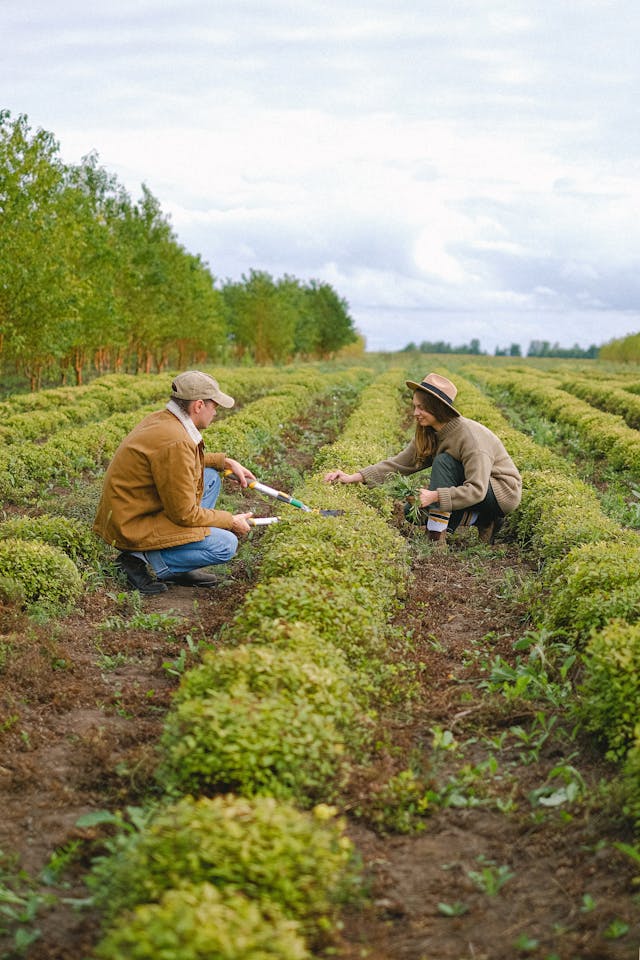Agricultural science and Forestry course
The wide-ranging discipline of agriculture and forestry includes all aspects of crop production, animal husbandry, and forest management. This field combines biology, environmental science, and resource management elements to promote sustainable behaviors and effective utilization of natural resources. Students acquire knowledge of both conventional and alternative farming practices and relevant engineering and technological concepts by studying soil science, plant pathology, animal husbandry, and forest ecology. The most pressing topics addressed in the course material are environmental protection, biodiversity, and land preservation. After finishing, many work in fields such as agriculture, forestry, conservation, or policymaking, all of which positively impact the environment and food security.


What makes a course in agricultural science and forestry worthwhile?
With an understanding of the environmental impacts of animal husbandry and plant cultivation, you may assist businesses in mitigating these impacts, build and protect wildlife, or design breathtaking garden landscapes that everyone can enjoy. You will also gain knowledge of forest management in your classes. The fields of agriculture and forestry offer a wide variety of job opportunities and practical uses. Learn the six most compelling arguments in favor of pursuing this degree and its practical applications and benefits.
- Help the world’s population.
- Support the environment
- Combine several different academic areas
- Chance to experience a wide range of environments
- Many different career paths
- Postgraduate opportunities are plentiful
Why study Agricultural science and Forestry courses abroad?
There is a lot more to a degree in agriculture or forestry than just farming or cutting down trees anymore. Acquiring a degree in agriculture requires students to learn about food science and technology, as well as biology, economics, management, chemistry, and environmental studies. Learning the ins and outs of farming, researching topics thoroughly, and adhering to professional norms of conduct are all skills students acquire through an agricultural education. It is up to the students to decide what they want to learn about agriculture and how they want to learn it. From associate’s degrees and bachelor’s to doctoral levels, there is an almost infinite number of possible permutations.


Study Agricultural Science & Forestry in the USA, UK, Canada, New Zealand & Australia
Agricultural science & Forestry is one of the most demanding subjects. People obtain degrees from this background to secure higher positions. The top-notch universities around the world offer this degree because of its demand. As the universities offer, so the students grab. Countries like the UK, USA, Canada, New Zealand & Australia are the best choices to study for this degree because these universities offer a vast opportunity for international students. You will quickly get a job opportunity after completing the degree from any of the mentioned countries.
English Test Requirements for Studying Agricultural Science and Forestry Abroad
PTE (Pearson Test of English) is the only accepted option for assessing English language skills regarding the criteria for studying Agricultural Science and Forestry overseas.
Type of Test: PTE assesses standard English proficiency through computer-based assessment. Speaking, Writing, Listening, and Reading are all covered in portions. Scores are reported using an interval of 10 to 90.
Lowest Possible Score:
PTE: PTE is becoming more popular as an alternative to IELTS. University-specific minimum PTE scores are different, much like IELTS minimum scores. Periodically, a 50 is thought to be equivalent to an IELTS score of 6.0. Verifying the exact program needs is always the best course of action.


Career Prospects
Enrolling in a study abroad program in agricultural science & forestry might lead to promising employment opportunities in a global-renowned field. The possible advantages are as follows:
Wide Variety of Possibilities:
Traditional Roles: Plant breeding, soil science, forestry, farm management, and fishery management are some professions you might choose from.
Emerging domains: Experts in precision agriculture, climate-smart agriculture, sustainable agriculture, and food security are in greater demand.
You can better understand global forestry management strategies and agriculture methods with an international focus. This may benefit foreign development, agricultural commerce, or the careers of global corporations.
Examples of Particular Careers:
Agricultural Research Scientist: Create novel tools and techniques to boost crop productivity, combat plant illnesses, and advance sustainable agriculture.
Agribusiness Consultant: Provide financial management, marketing tactics, and production optimization guidance to farms and agribusinesses.
